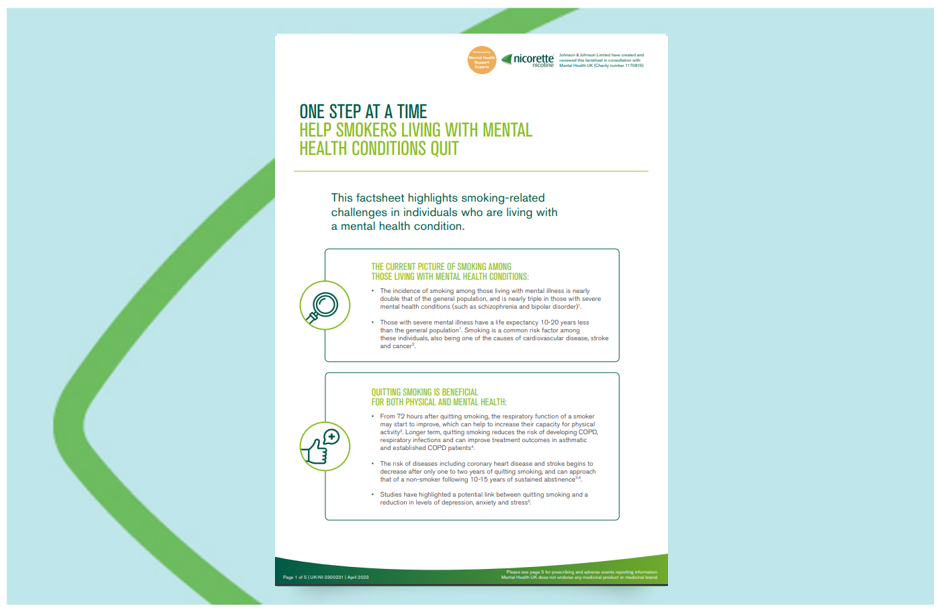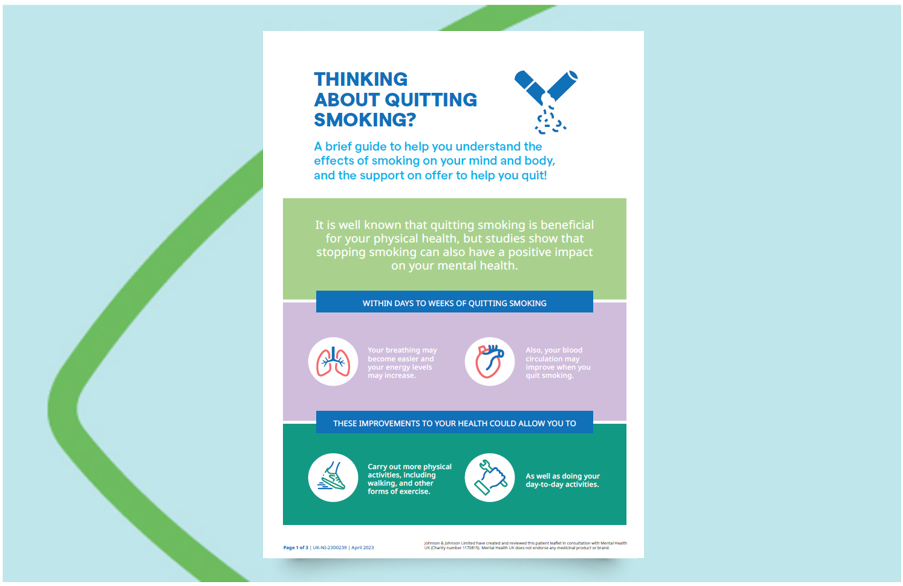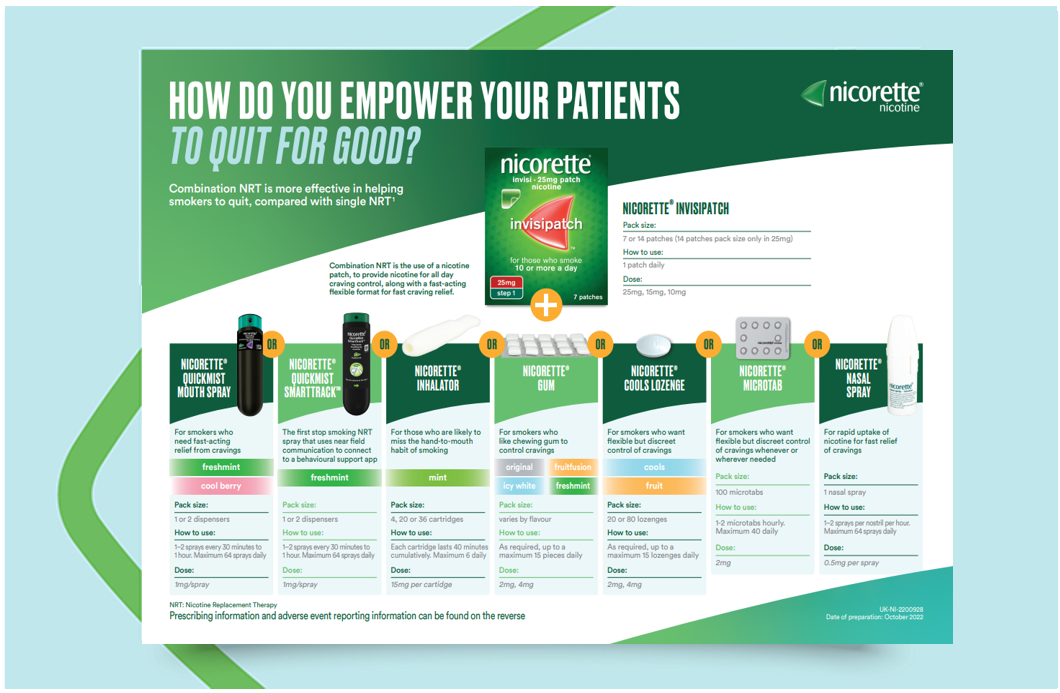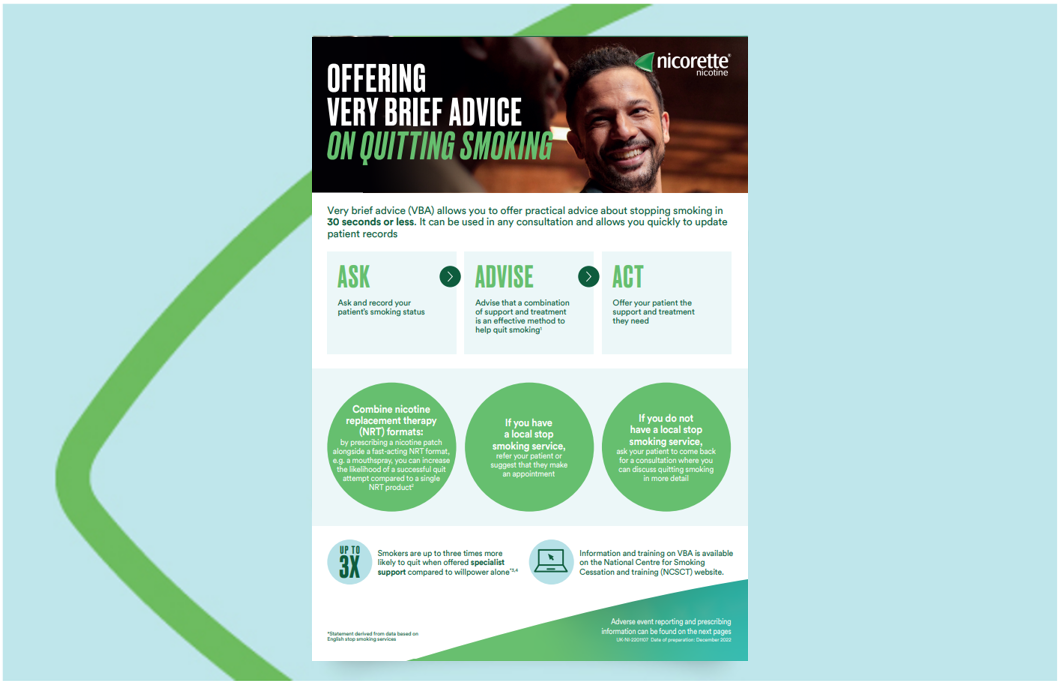
How to Help Smokers with Mental Health Conditions Quit
• The incidence of smoking among those living with mental illness is nearly double that of the general population, and is nearly triple in those with severe mental health conditions (such as schizophrenia and bipolar disorder)1.
• Those living with severe mental illness have a life expectancy 10-20 years less than the general population1. Smoking is a common risk factor among these individuals, also being one of the causes of cardiovascular disease, stroke and cancer2.
Quitting smoking is beneficial for both physical and mental health.
• From 72 hours after quitting smoking, the respiratory function of a smoker may start to improve, which can help to increase their capacity for physical activity3.
• The risk of diseases including coronary heart disease and stroke begins to decrease after only one to two years of quitting smoking, and can approach that of a non-smoker following 10-15 years of sustained abstinence3,4.
• Studies have highlighted a potential link between quitting smoking and a reduction in levels of depression, anxiety and stress5.

Your Conversation Toolkit
Step 1: Initiate the conversation
Start with open questions Try to be non-judgemental and open to avoid discouraging them from disclosing important information to you.
Examples: • ‘How would you like to improve your general health?
• ‘I see that you are a smoker – how do you feel about smoking at the moment?’
|
Step 2: Explore motivations and barriers
• Ask them whether they have ever attempted to quit before – if so, ask them what triggered them to try and quit.
• Assess their readiness to quit, and their confidence in their ability to do so.
• Use ‘double-sided reflection’ to show you are listening, but reframe any concerns.
|
Step 3: Highlight capability and support available
Support • Advise your patient to bring the support of friends, family and carers into their quit journey. This will bring logistical as well as social support.
Capability • Discuss practical ways to avoid the social triggers to smoking.
• Find their common social and behavioural triggers - friends, stress, alcohol, food, time of the day. |
Step 4: Understand the psychological & physiological aspects
• The addiction is psychological as well as physiological.
• It should be highlighted that relapse is not failure, but a step in the journey to quit for good.
• If your patient does relapse, use this as a time to explore why, and highlight their initial motivations to quit. |
Support your patients with mental health conditions on their quit journey with our factsheet & conversation guide and patient leaflet.
Patient resources should be downloaded and not shown directly from the website
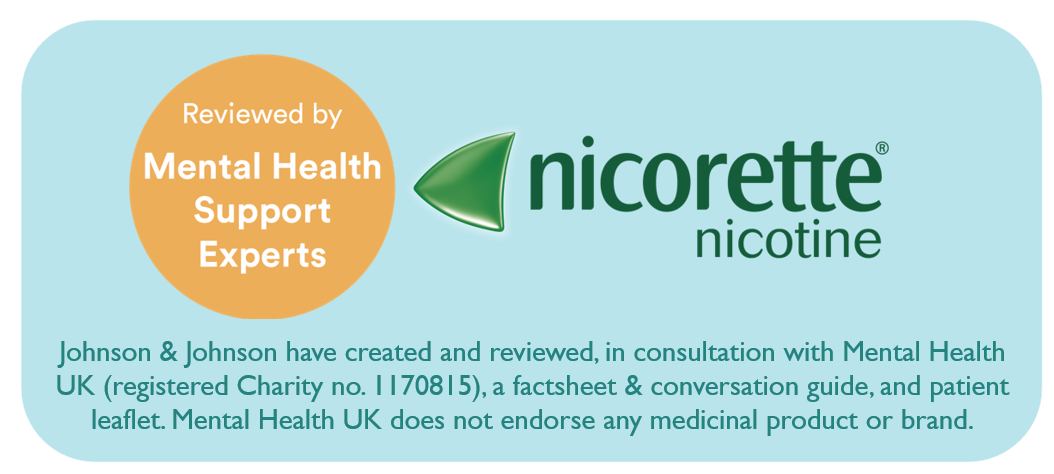
Additional resources available from Mental Health UK
Click here to go to Mental Health UK's conversation guide for friends and relatives on how to talk to someone about mental health (this link will take you to Mental Health UK's website).
Using Very Brief Advice (VBA) to Help Patients
with Mental Health Conditions Quit Smoking
Very brief advice (VBA) allows you to offer practical advice about stopping smoking in 30 seconds or less.
It can be used in any consultation and is a quick and effective way to help them on their path to quitting.
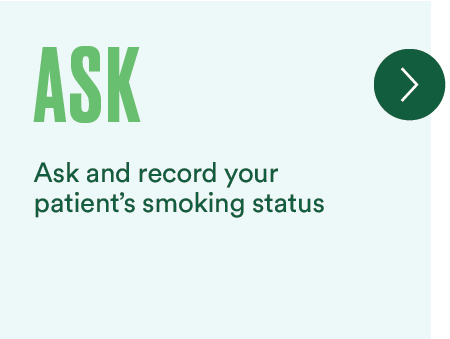
|
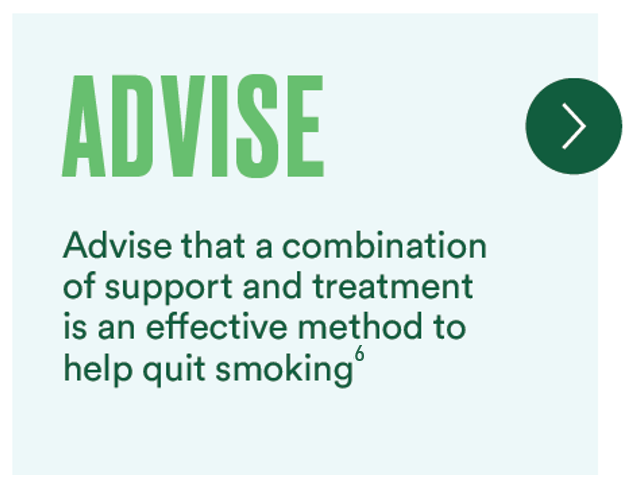
|

|
The simple Ask, Advise, Act framework is a useful 3-step approach to discussing your patient's quit journey.
Take a look at our page on Using Very Brief Advice (VBA) to Discuss Smoking.
The NICORETTE® Range Guide
How do you empower patients to quit for good?
NICORETTE® offers a variety of flexible formats so you can personalise your patients' treatment to suit them.
Browse the NICORETTE® Range Guide to find the best Combination Nicotine Replacement Therapy (NRT) format that works for them.
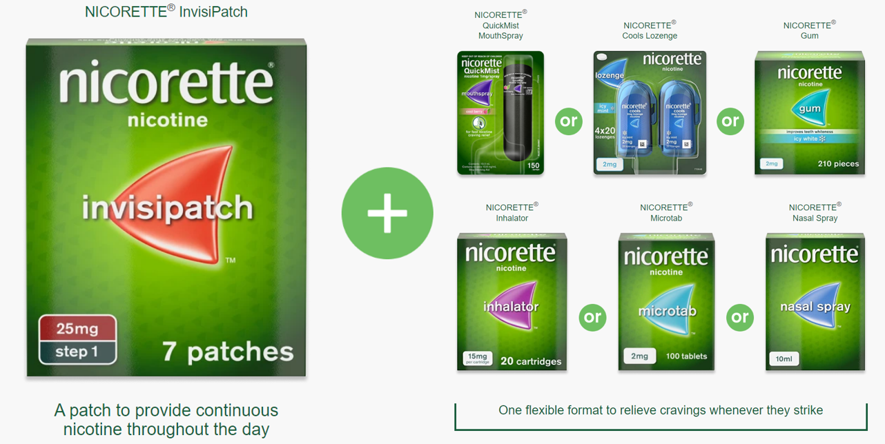
Additional Resources from NICORETTE®
Click here for NICORETTE® (nicotine) prescribing information
References
1. Public Health England. Health Matters: smoking and mental health (2020). Available here. [Accessed May 2023]
2. World Health Organisation. Tobacco use and mental health conditions: A policy brief (2020). Available here. [Accessed May 2023]
3. NHS Better Health. Quit smoking (2019). Available here: https://www.nhs.uk/better-health/quit-smoking/ [Accessed May 2023]
4. Centers for Disease Control and Prevention. Smoking and Tobacco Use: Benefits of Quitting (2020). Available here [Accessed May 2023]
5. Taylor GM et al. Smoking cessation for improving mental health. Cochrane Database of Systematic Reviews (2021). Available here [Accessed May 2023]
6. NICE. NICE guideline NG209. Tobacco: preventing uptake, promoting quitting and treating dependence. November 2021
Date of preparation: May 2023
